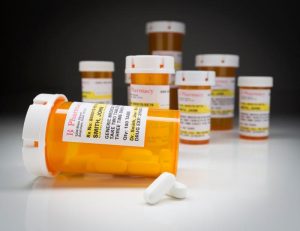COME OCTOBER, women will be able to visit their local pharmacists and fill out a prescription for Addyi, a new drug that claims to increase a woman’s desire for sex. Yes, this sounds like the central plot device of a dystopian Judd Apatow comedy set 10 years in the future, but it’s actually happening in just two months’ time. I, for one, am fascinated to see how this plays out. I’m impatient for the inevitable “I took Addyi and here’s what happened…” think pieces. But, for now, here are my concerns.
There’s no dearth of smart words that have been shared about this month’s announcement of the FDA approval of this drug. Many have argued, quite fairly, that a low sex drive, disinterest in sex, or disinterest in sex with a particular person should not be turned into a disease or dysfunction when the reasons for lack of interest are likely multiple and varied. However, none have mentioned that one of the proven primary reasons for lack of sexual desire is hormonal birth control — something that 80% of women use at some point in their lives. The popularity of the Pill has created the perfect environment in which to introduce a libido-boosting drug.
Dr Irwin Goldstein, an early proponent of hypoactive sexual desire disorder — the disorder this drug purports to “fix” — was involved in the trials for Addyi. He originally utilized the widely-known impact of hormonal birth control on female libido as a justification for the development of a medication to treat lack of sexual desire. Goldstein has widely discussed the emotional and sexual side effects of the Pill — in fact, he’s one of few research scientists that concedes their prevalence — but he has used this platform as a step-up to developing (and cashing in on) a new pill that women will have to take every day to treat a highly-controversial disorder. Hypoactive sexual desire disorder could, in a different light, be seen as just another iatrogenic illness — meaning, an illness caused by medical treatment. Goldstein was involved in a 2006 study that revealed that the suppressed libido caused by the birth control pill can, for some women, be a permanent issue. Even after they come off the Pill, these women do not experience a desire for sex at the same level they experienced prior to using it. The research was reported at the time to show that women using the Pill had a higher incidence of “sexual dysfunction.” In a way, the pharmaceutical industry has exploited a particularly cruel side effect of one of its top-selling drugs to create another potentially top-selling drug.
Addyi has also been colloquially dubbed as the “female Viagra.” Although no drug will avoid having a whole-body impact to some degree, Viagra is primarily physiological in effect, whereas Addyi impacts a woman’s endocrine system. Many have expressed concern that women will be encouraged to take a drug every day that will fundamentally change their “brain chemistry,” which is something that many women do already when taking the Pill. Women are also encouraged to use the pill on the basis that it will improve their desire for sex by removing the worry of getting pregnant, and the Pill and the sexual liberation movement have always been historically intertwined. Studies have indeed suggested that women on the Pill have more sex — even if they’re less likely to enjoy it. Studies of Addyi have similarly concentrated on the frequency, or quantity, of sexual encounters, as opposed to the quality, which are usually labeled as just “satisfactory.” Such discussions are reminiscent of that scene in Woody Allen’s “Manhattan,” wherein a woman announces at a party that she had her first orgasm the other day, and her doctor promptly informed her that it was “the wrong kind.”
One of the elements of hypoactive sexual dysfunction is “distress” exhibited over not desiring/enjoying sex. Where does this distress come from? As others have speculated, one might fairly assume it comes partly from pressure on women within relationships to be “on” at all times. How many of these women are also pressured to use hormonal birth control to ensure worry-free, spontaneous sex even if it suppresses their libido? My guess? Most of them. The Pill dismantled one of the reasons women would/could use to refuse sex — the possibility of pregnancy. Now women are expected to be on the Pill and to be available for sex on a consistent basis, even if they don’t desire it, because the central obstacle to recreational sex is removed. How many women are having sex when they don’t really want to? Not in encounters they would define as rape, but as a consequence of low desire. It’s not something we like to think about too much – we prefer to believe that “yes means yes!” We hear the only way to ensure your partner is not going to consider sex to be rape is if they give “enthusiastic consent.” How will Addyi impact this discussion? If a pill is changing your brain chemistry, is sex really what you want?
Those who want to know what will occur in the 50 years after the release of Addyi don’t need to wait that long for results. Just look back on how our approach to sex has changed in the half-century since the release of the birth control pill.


-300x200.jpeg)









-300x241.jpeg)




